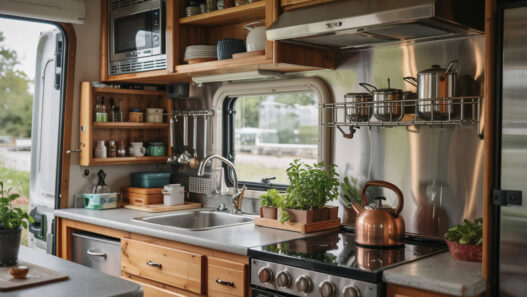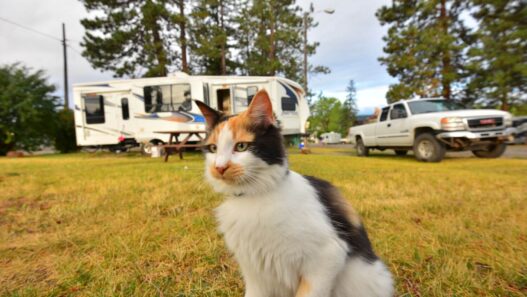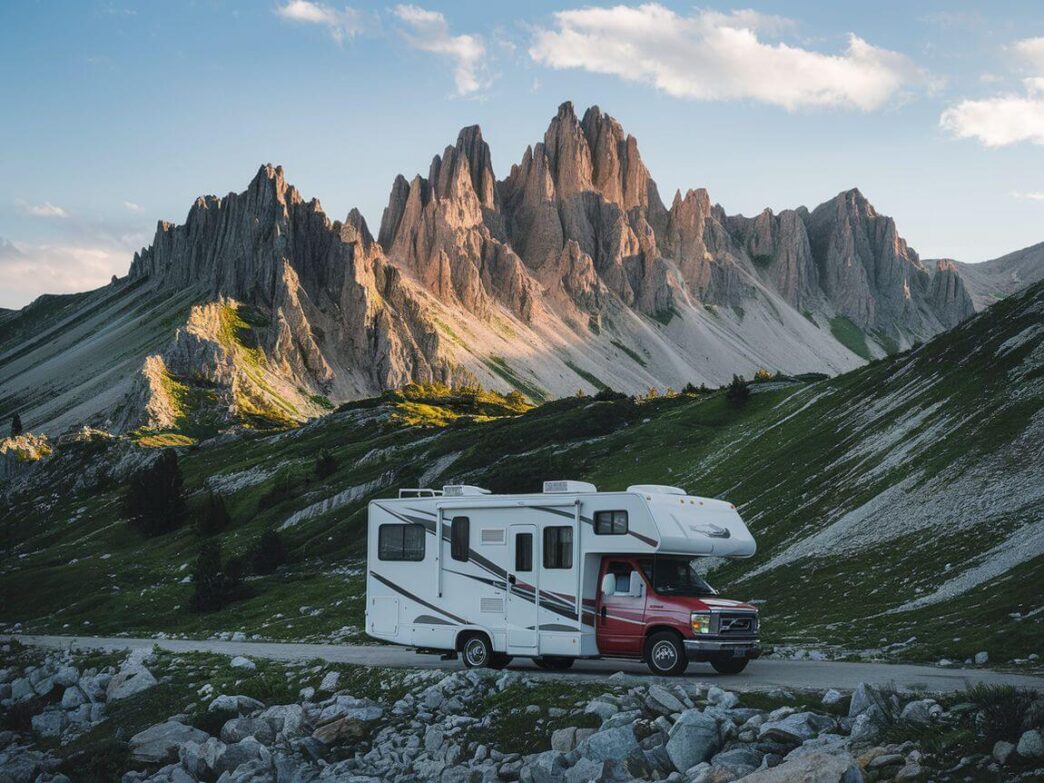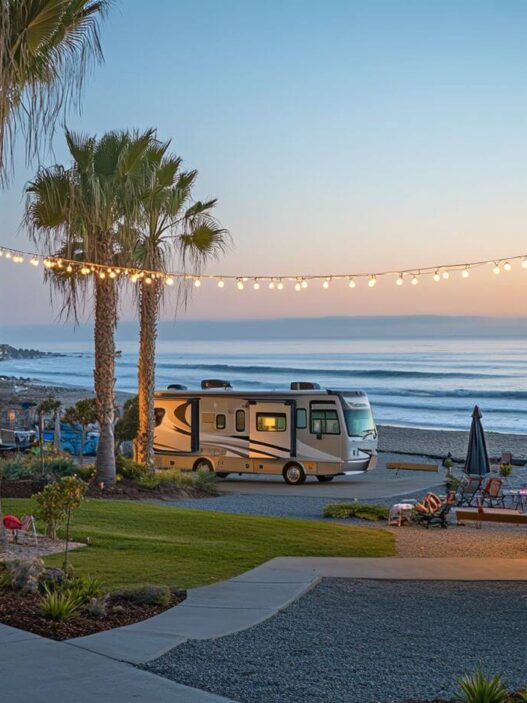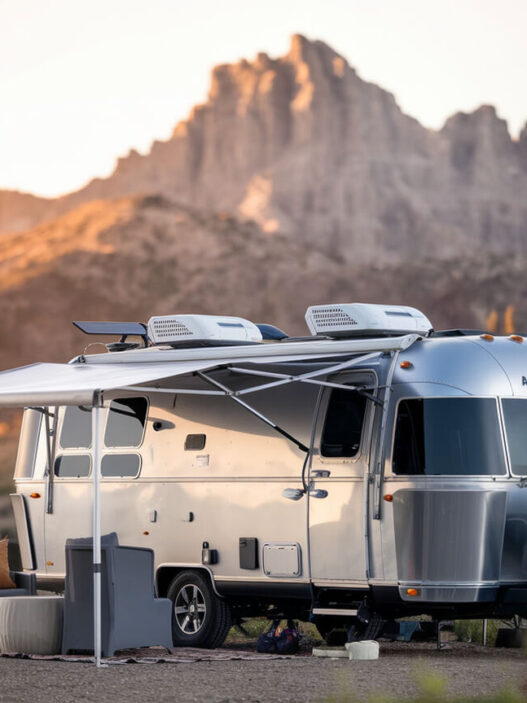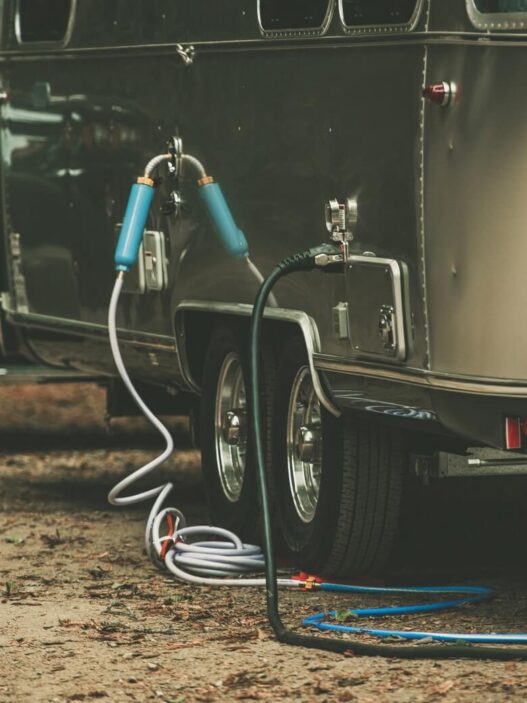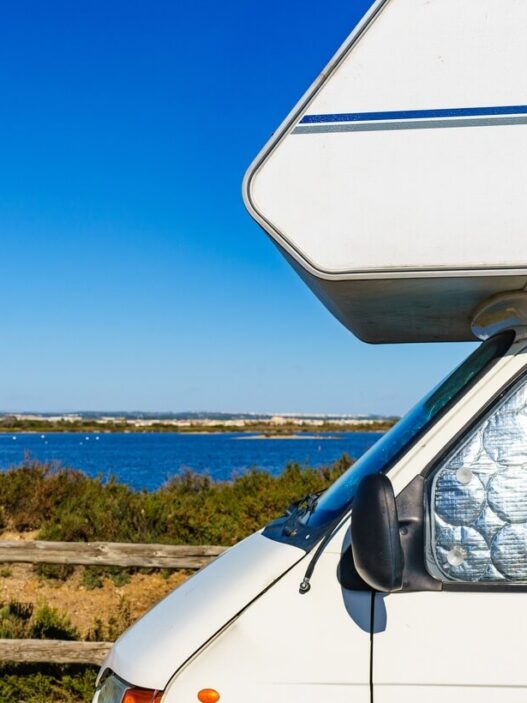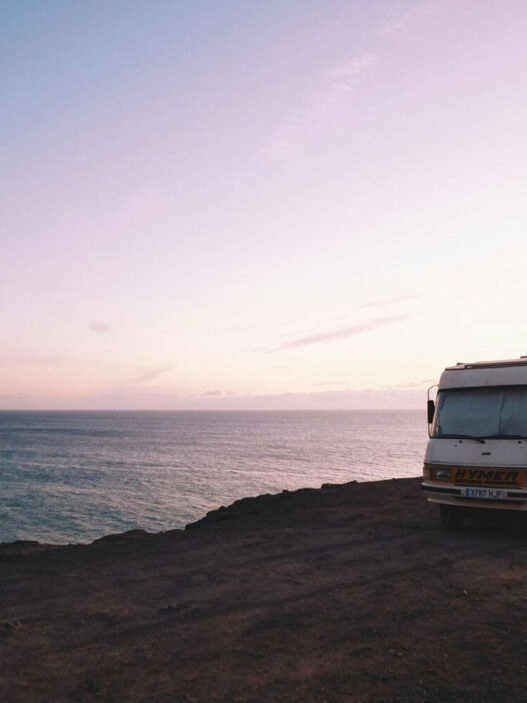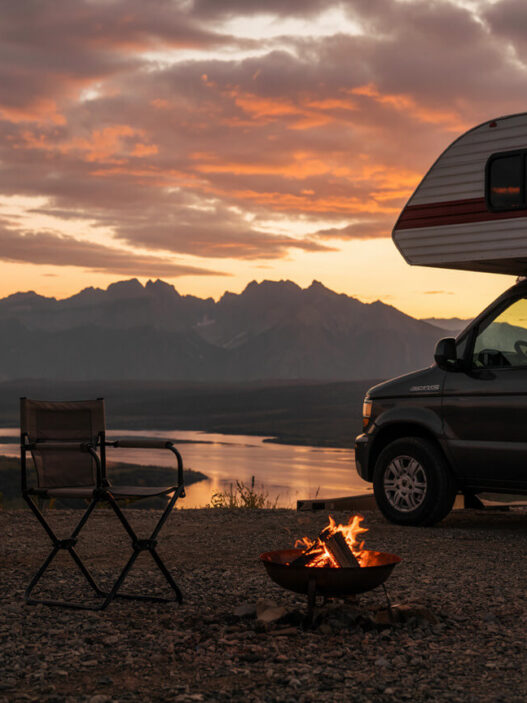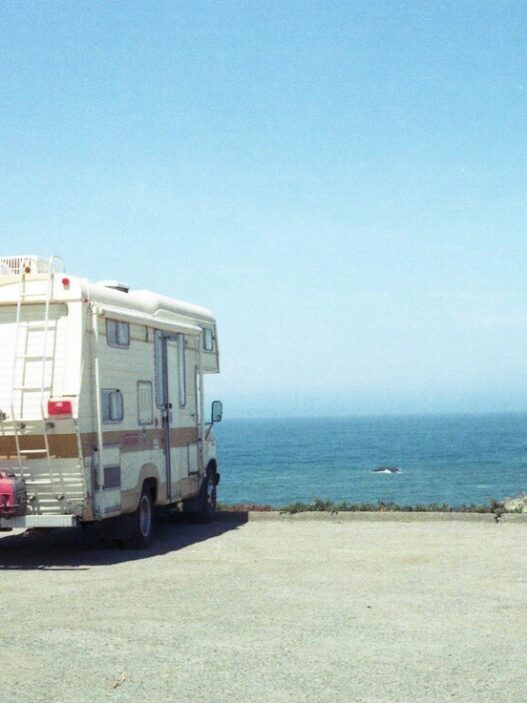The dream of selling everything, hitting the open road, and living life on your own terms has never been more appealing. Social media is filled with stunning photos of RVs parked beside crystal-clear lakes and happy nomads living their best lives.
But between those perfect sunset photos and gorgeous camping spots lies a reality that requires careful consideration. And while full-time RV living can be an incredible journey, it’s also a major lifestyle change that affects everything from your daily routines to your financial planning.
To help you understand what to expect, we’ve made this list of things to think about when considering if full-time RV living is for you. This isn’t meant to discourage you, it’s to help you make an informed decision and set yourself up for success if you decide to take the plunge!
1. Picking The Right Size RV Can Be Intimidating
Remember Goldilocks? Finding the RV that’s “just right” can feel just as tricky. Living space requires careful thought, and bigger isn’t always better. In fact, many experienced RVers say they initially chose RVs that were too large, which made travel more challenging and limited their camping options. A smaller, more manageable RV often provides better flexibility and ease of use.
On the flip side, some RVers wish they’d gone bigger with their first purchase. While you can’t predict exactly how you’ll feel after a year or two on the road, here are some questions to ask yourself:
- How much time will you spend inside vs. outside?
- Do you need a dedicated workspace?
- Are you comfortable driving/parking a larger vehicle?
- What kind of camping spots do you plan to visit most often?
2. Financial Realities
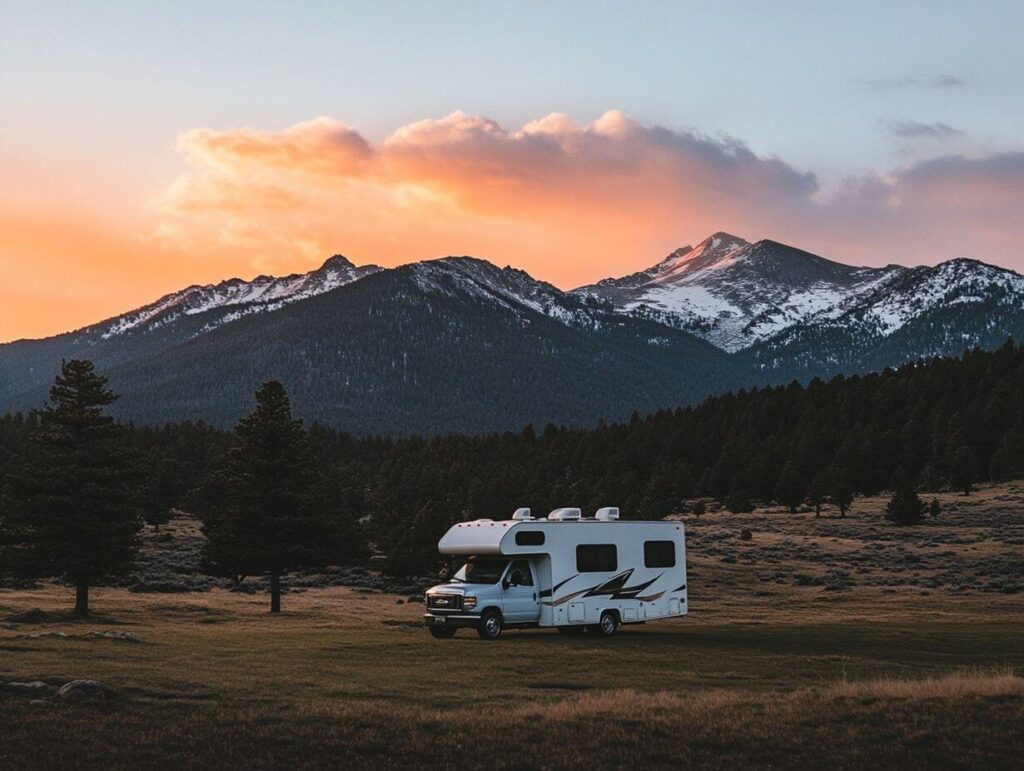
Full-time RVing can be more expensive than you might think. While some people do save money compared to traditional housing, don’t assume it will automatically be cheaper. The reality is that many new full-timers are surprised by how quickly expenses add up, even after eliminating a mortgage or rent payment.
Your costs can vary dramatically based on your travel style, from budget-conscious boondocking to luxury RV resorts. The key to success is understanding all the potential expenses upfront and creating a realistic budget that matches your desired lifestyle. Here’s what you need to budget for:
- Insurance for both RV and health coverage
- Regular maintenance, including oil changes, tire rotations, and brake checks
- Campground fees, which typically range from $25 to $100 or more per night
- Fuel costs, which can be substantial with larger RVs
- Entertainment and attractions
- Emergency repairs (which will inevitably happen)
- Internet and phone plans
- Propane and utilities
- Annual registration and taxes
Pro tip: Create a detailed budget, then add 20% for unexpected expenses. Trust us on this one!
3. Planning, Planning, Planning
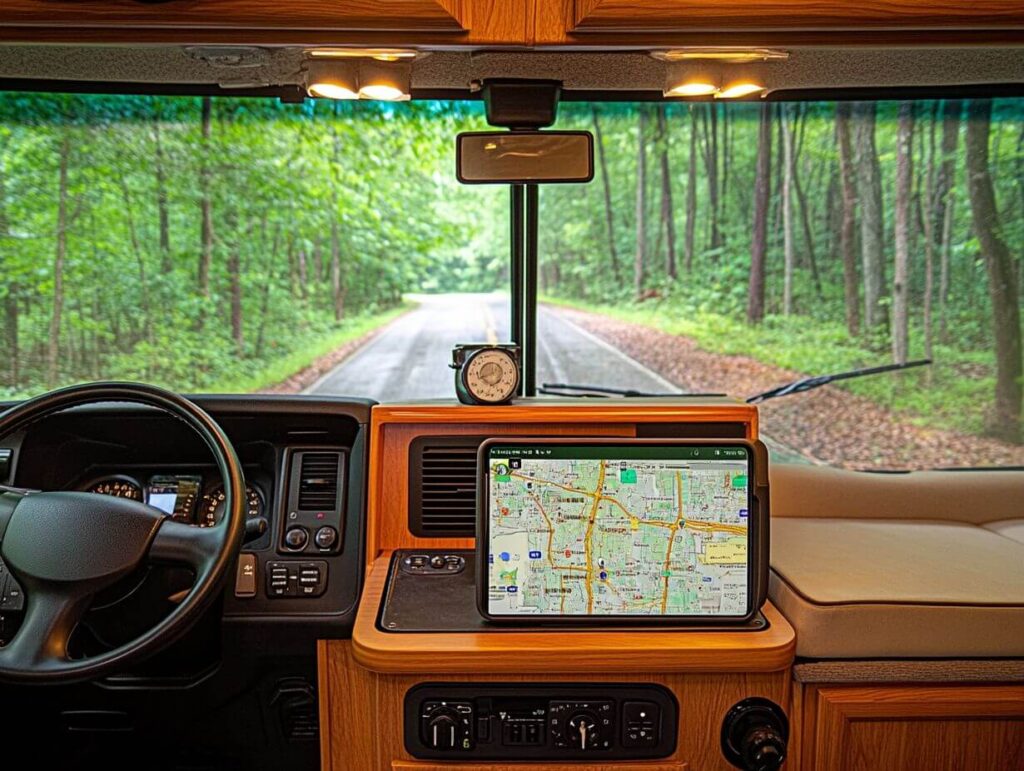
If you think full-time RV living means complete freedom to roam wherever the wind takes you, you might be in for a surprise. While the lifestyle offers incredible flexibility, successful full-time RVing actually requires quite a bit of planning and forethought.
The days of simply pulling into any campground and finding a spot are largely gone, especially during peak season. The most popular destinations often fill up months in advance, and trying to find last-minute accommodation can be stressful and expensive. This is particularly true for larger RVs or during special events and holidays.
Travel days are surprisingly exhausting, which is why most RVers recommend limiting driving to 4-6 hours in a day. Weather becomes a huge factor in your plans, as no one wants to drive a high-profile vehicle in heavy winds. Route planning must also account for bridge heights, road restrictions, fuel stops that can accommodate your rig, and safe rest areas.
4. You May Find The Lack Of A Consistent Schedule Challenging
One of the biggest appeals of RV living is the freedom to travel and explore. However, some people are surprised to discover that this constantly changing lifestyle doesn’t provide the stability they need to thrive. This doesn’t mean full-time RV living isn’t right for you. It simply means you might need to adjust your approach.
Consider these options:
- Stay at one RV park for several months before moving
- Establish a “home base” campground and take shorter trips from there
- Create routines that travel with you, such as morning coffee rituals or exercise routines
- Set up a consistent work schedule if you’re working remotely
5. You’re Always Thinking About Storage And Organization
Living in an RV full-time means becoming a master of organization, and this goes far beyond just keeping things tidy. When you’re working with limited space, every storage decision becomes crucial to your daily comfort and functionality.
Most successful full-time RVers quickly learn that the key isn’t just finding places to put things, it’s being intentional about what you keep in the first place.
Start by focusing on multipurpose items rather than single-use tools. That fancy kitchen gadget might be nice to have, but consider whether it justifies the precious storage space it consumes. Many RVers find that plastic totes under benches and in exterior compartments become their best friends, allowing for both organization and easy access. Implementing a strict “one-in-one-out” rule for new purchases helps prevent accumulation of unnecessary items.
The real secret to successful RV storage isn’t just about cramming more stuff into small spaces. It’s about regularly evaluating what you truly need and use. Think of your RV as a carefully curated tiny home rather than trying to replicate your traditional house setup. This mindset shift often leads to a more satisfying and manageable living situation.
6. There’s Always Maintenance & Repairs
If you’re serious about full-time RV living, you’ll need to embrace the role of part-time handyperson, regardless of your existing skillset. Your home on wheels essentially experiences small earthquakes every time it moves down the road, which means things will inevitably break, loosen, or need adjustment. Even brand new RVs aren’t immune to issues. In fact, you’ll often need to put them through a “shake out” phase to allow everything to settle.
Successful full-time RVing requires developing at least basic maintenance and repair skills. You don’t need to become a master mechanic, but knowing how to handle common issues can save you both time and money. For us, YouTube and online forums became our best friend!
7. You Might Need To Make More Of An Effort To Build Community
The social aspect of RV living is often overlooked in the excitement of planning for life on the road. While the freedom to travel is wonderful, maintaining meaningful connections requires more intentional effort when you’re constantly on the move. The good news is that the RV community is generally incredibly welcoming and friendly. You just need to be proactive about engaging with it.
If this is especially important to you, staying in one place for longer periods will allow you to build deeper connections with both fellow travelers and local communities. RV clubs and rallies provide excellent opportunities to meet like-minded people, and social media has made it easier than ever to stay connected with friends you meet along the way.
Having an extrovert in your traveling party can certainly make social connections easier, but even introverts can find their place in the RV community. The key is finding the right balance between social interaction and personal space that works for you and your travel style.
Our Recommendation: Rent Before You Buy
The single best piece of advice we can give to anyone considering full-time RV living? Try before you buy. Renting an RV for an extended period (at least a few weeks) will help you:
- Experience different RV sizes and layouts
- Learn what features matter most to you
- Understand the daily realities of RV living
- Practice driving and parking
- Test if the lifestyle suits you
- Avoid potentially expensive mistakes
Many rental companies offer long-term discounts, and the investment could save you thousands in the long run by helping you make better decisions about your eventual purchase.
Remember, full-time RV living can be an amazing adventure, but it’s not for everyone. Take your time making the decision, do your research, and be honest with yourself about what you need to be happy and comfortable on the road.
Final Thoughts: Is Full-Time RV Living Right for You?
At the end of the day, full-time RV living isn’t about having the perfect rig or following someone else’s playbook. It’s about understanding what works for you and creating a lifestyle that aligns with your needs, preferences, and goals. Some people try it for a year and decide to return to traditional housing. Others fall in love with the lifestyle and never look back. Neither outcome is wrong.
The key is to approach the decision with open eyes and realistic expectations. Take your time with research, start with a rental experience, and be honest with yourself about what you need to be happy. Remember that you can always adjust your approach once you’re on the road. Many full-timers find their sweet spot by trying different travel styles, RV sizes, and community engagement levels until they find what works best for them.
If you’ve read through these considerations and still feel excited about the possibilities, that’s a good sign! Just make sure to do your homework, plan carefully, and remember that the perfect Instagram photos don’t tell the whole story. With proper preparation and realistic expectations, life on the road can be an amazing adventure that opens up a world of new experiences and possibilities.



